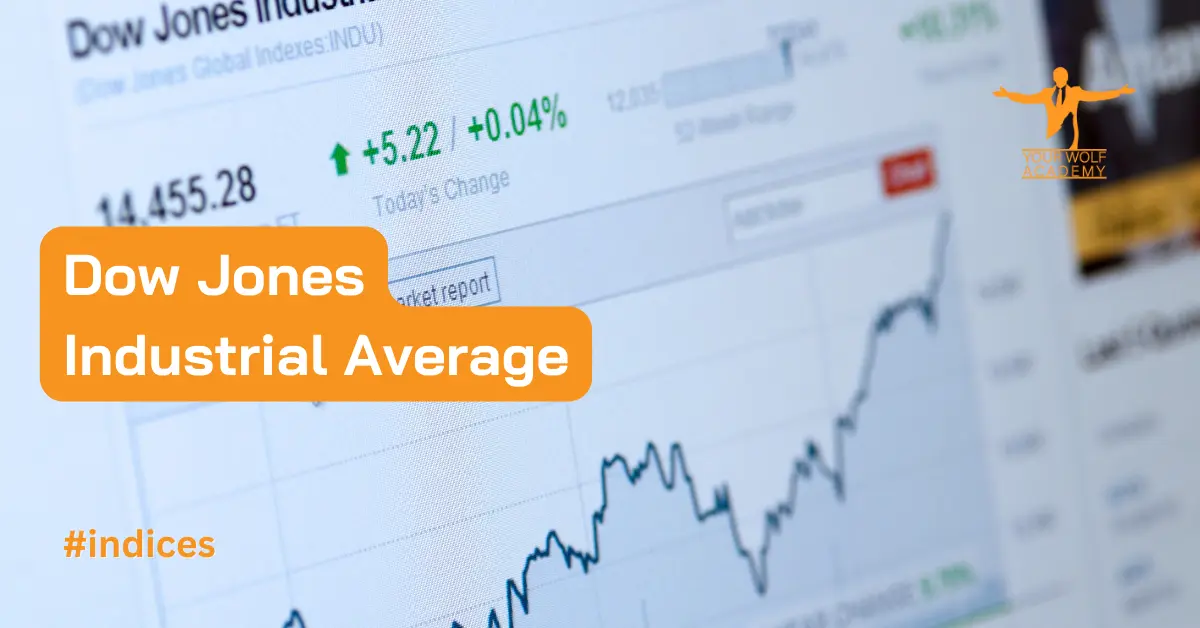The Dow Jones Industrial Average (DJIA), also known as the Dow, is one of the most widely recognized and watched stock market indices in the world. It tracks the performance of 30 large, publicly owned companies based in the United States, representing a diverse range of industries.
In this article, we’ll explore the history of the DJIA, how it is calculated, its components, and its significance in the financial world.
History of the DJIA
The DJIA was created in 1896 by Charles Dow and Edward Jones, founders of Dow Jones & Company. At the time, the index consisted of only 12 industrial companies, such as American Cotton Oil, American Sugar, and General Electric. The index was originally created as a way to track the performance of the industrial sector of the US economy, hence its name.
Over time, the DJIA has evolved and expanded. In the early 20th century, the index added non-industrial companies, such as retailers and utilities. Today, the DJIA consists of 30 large-cap companies, covering a wide range of sectors, including technology, healthcare, finance, and retail.
How is the DJIA Calculated?
Unlike other stock market indices, such as the S&P 500, the DJIA is price-weighted, meaning that the index is calculated based on the prices of the 30 component stocks. This means that companies with higher stock prices have a greater impact on the index than companies with lower stock prices.
To calculate the DJIA, the sum of the prices of all 30 component stocks is divided by a divisor, which is adjusted periodically to account for stock splits, dividends, and other corporate actions. This divisor is currently less than one, meaning that the higher the price of the component stock, the more weight it carries in the index.

Components of the DJIA
The 30 component stocks of the DJIA are chosen by the editors of The Wall Street Journal, which is owned by Dow Jones & Company. The selection process is subjective and takes into account factors such as a company’s size, reputation, and contribution to the US economy.
The current components of the DJIA include some of the most well-known and influential companies in the world, such as Apple, Microsoft, Johnson & Johnson, and Visa. The index is also rebalanced periodically to reflect changes in the US economy and business landscape.
Table is according to September 2021 data
| Company Name | Ticker Symbol |
|---|---|
| 3M Company | MMM |
| American Express Company | AXP |
| Amgen Inc. | AMGN |
| Apple Inc. | AAPL |
| Boeing Company | BA |
| Caterpillar Inc. | CAT |
| Chevron Corporation | CVX |
| Cisco Systems Inc. | CSCO |
| The Coca-Cola Company | KO |
| The Walt Disney Company | DIS |
| Dow Inc. | DOW |
| Goldman Sachs Group, Inc. | GS |
| The Home Depot, Inc. | HD |
| Honeywell International Inc. | HON |
| International Business Machines Corporation | IBM |
| Intel Corporation | INTC |
| Johnson & Johnson | JNJ |
| JPMorgan Chase & Co. | JPM |
| McDonald’s Corporation | MCD |
| Merck & Co., Inc. | MRK |
| Microsoft Corporation | MSFT |
| Nike, Inc. | NKE |
| Procter & Gamble Company | PG |
| Salesforce.com, Inc. | CRM |
| The Travelers Companies, Inc. | TRV |
| UnitedHealth Group Incorporated | UNH |
| Verizon Communications Inc. | VZ |
| Visa Inc. | V |
| Walgreens Boots Alliance, Inc. | WBA |
| Walmart Inc. | WMT |
Significance of the DJIA in the Financial World
The DJIA is often used as a barometer of the overall health of the US stock market and the US economy as a whole. Because the index consists of 30 large-cap companies from a diverse range of sectors, it is considered a reliable indicator of the performance of the US economy.
The DJIA is also closely watched by investors and traders around the world, who use it as a tool for making investment decisions. Because the index is widely recognized and followed, changes in the index can have a significant impact on financial markets and investor sentiment.
Conclusion
The Dow Jones Industrial Average (DJIA) is a key stock market index that tracks the performance of 30 large, publicly owned companies based in the United States. It is a price-weighted index, calculated based on the prices of its component stocks, and is widely recognized as a barometer of the overall health of the US stock market and economy.
By understanding the history, calculation, components, and significance of the DJIA, investors and traders can gain a better understanding of the US economy and make informed investment decisions.
Overall, the DJIA plays a critical role in the financial world as a benchmark index that reflects the performance of the US economy. Investors and analysts alike follow the DJIA closely as it represents the performance of some of the largest and most influential companies in the world, providing a glimpse into the overall health of the economy.
With its diverse range of component companies, the DJIA offers a unique perspective on the stock market, and its importance is unlikely to diminish anytime soon.
Your Wolf Academy offers a range of educational resources to help traders succeed, including free signals, technical analysis, and weekly webinars. Sign up today and get a recommendation for a regulated brokerage company that suits your needs.


